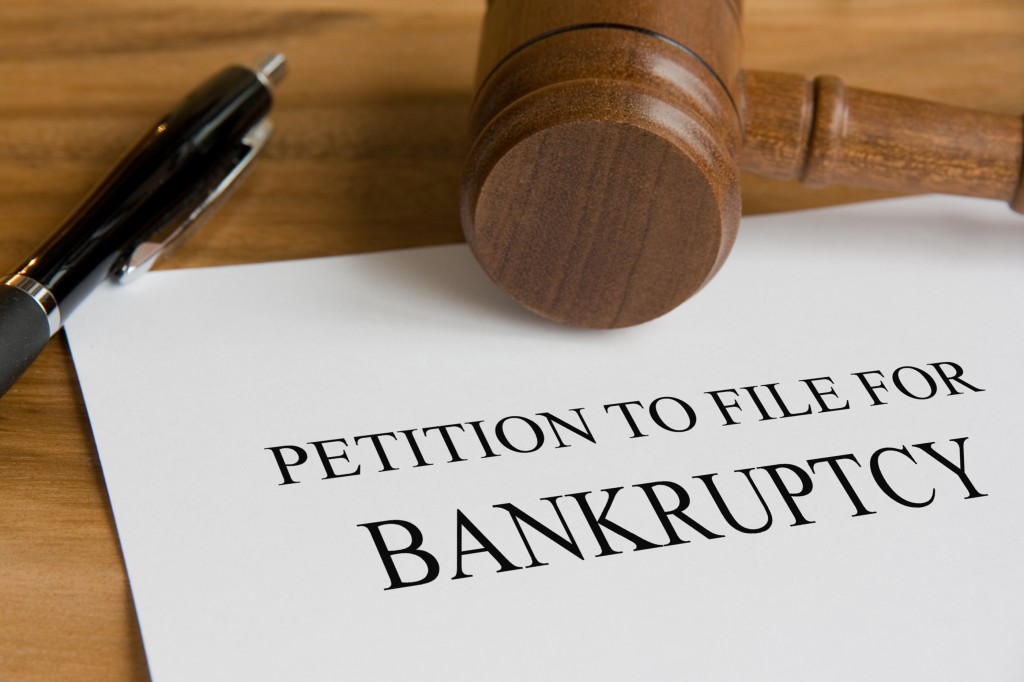



* President Sheikh Khalifa issued the Law Decree No. 9 for 2016 on bankruptcy
* Creditors can launch insolvency case if debts of AED100,000 or more are unpaid for more than 30 days
* UAE first to introduce bankruptcy law in GCC, Saudi Arabia pursuing similar legislation
In the past, if you ran a business in the UAE and went bankrupt, you would face a business owner’s worst nightmare: jail time. But those days are now numbered, thanks to a new law that will come in to effect in end of this year.
President Sheikh Khalifa bin Zayed Al Nahyan issued the Law Decree No. 9 for 2016 on bankruptcy, the state-run news agency WAM reported on Monday. This follows the Cabinet approval of the law on September 4.
Exact details of the federal law are yet to be made known to the public. However, The English-language newspaper The National has reportedly seen a copy of the law. According to the daily, the new bankruptcy law will provide a comprehensive legal framework to help distressed companies in the country avoid collapse.
Under the terms of the new law, creditors will be able to initiate insolvency proceedings against companies or traders in cases where debts of AED100,000 or more are unpaid for more than 30 days, the paper reported on Tuesday.
The law will reduce the risk of doing business in the country, as it means that if a company goes bankrupt, the owners would be able to liquidate debtors’ assets and not be held personally responsible for them and jailed.
A fresh start and a second chance
It is a shrewd move by the government, promising a variety of benefits for the country, economy and small business owners. A personal insolvency law is important to an Arab country, as it helps to diversify the economy away from the reliance on hydrocarbons, which has become a pressing concern after the decrease in oil prices.
The law is the first of its kind in the Gulf, but Saudi Arabia is working on similar legislation as the kingdom seeks to attract more foreigners.
According to official sources, the new law “aims to strengthen the legal sustainability and attractiveness of the investment environment in the UAE and to increase the ease of doing business”. The implications of the law are profound; it will help the economy for the simple reason that it will encourage foreigners to set up businesses in the UAE as there is no longer a risk of having to flee the country if the company goes bankrupt.
Other benefits for companies include continuity, as they won’t be forced to wind up when they go bankrupt and there will be more flexibility for them to manage their finances. More broadly the new law spells improved business confidence and enhances the attractiveness of the UAE to investors.
Law explained
Essam Al Tamimi, senior partner and founder of leading law firm Al Tamimi & Company, says the bankruptcy law applies to four categories of traders: corporate entities, service companies, individuals who conduct business for profit, and corporations and semi-government corporations. The government is excluded from this law.
According to him, the new draft law provides traders three key options when in financial crisis: restructuring, preventative composition and bankruptcy.
Restructuring ensures that debts and businesses are put through a “Financial Restructuring and Bankruptcy Committee” in order to avoid bankruptcy via soft-touch conciliation outside of the courts.
Meanwhile, preventative composition involves action taken through the courts to protect the assets of the creditors against bankruptcy.
The bankruptcy option ensures that full bankruptcy proceedings will be taken through to the courts, which could also involve restructuring.
“The strong emphasis on restructuring suggests that traders should be given the chance to restructure, pay their debts and avoid bankruptcy – this provides a better avenue for financially at-risk traders than bankruptcy itself, on which the previous law was based,” Al Tamimi said during a talk on the subject at Dubai’s Capital Club earlier this month.
Banks’ risk appetite to increase
Banks will also benefit from the new law, as it allows companies to restructure their debt. In the past, business owners would be forced to flee the country and default on their debts rather than facing jail. This means banks would never get back the money they had loaned. Such debts totalled more than $1.4 billion in 2015.
Through restructuring, the companies in distress will receive new loans under terms set by the law, which would therefore help the banks circulate some of this money back into the economy.
“We commend and welcome the legislation of the bankruptcy law, which the government has recognised as a pre-requisite to the country’s future economic development and as an essential tool to maintain the well-being of the business and environment economy,” said AbdulAziz Al Ghurair, chairman of the UAE Banks Federation.
The new law has been met with praise around the world and is likely to reinvigorate the economy and provide a new lease of life to struggling small and medium enterprises, but its benefits are likely to take some time to be realized.
(published by AMEinfo)
